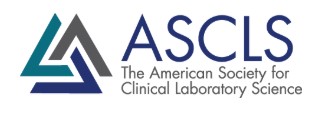About Us
The Phlebotomy Program is designed to prepare students for the ever-changing field of phlebotomy. Phlebotomists serve a more vital role than ever before in the care of patients, thanks to increasing demand to provide patient samples for diagnostic testing. Students will develop venipuncture skills along with the critical thinking and communication skills required to provide essential patient samples used to diagnose diseases and monitor patients' progress.
The program welcomes students who are enthusiastic about providing focused patient care and have a strong personal work ethic conducive to achieving quality samples for patient testing.
The Phlebotomy Program guarantees placement for up to 12 students each academic session, with up to four of the students being placed at a Cleveland Clinic hospital or family health center for their clinical experience. If there is a situation where students cannot be placed at a clinical affiliate for their rotation, they will be placed at Cleveland Clinic’s main campus for completion of their clinical experience.
Accreditation
The Phlebotomy Program at Cleveland Clinic is accredited by the National Accrediting Agency for Clinical Laboratory Sciences (NAACLS). Program outcomes will be posted after completion of first academic session.
5600 N. River Rd.
Suite 720
Rosemont, IL 60018-5119
773.714.8880
This Accreditation allows any student who successfully completes the program to apply for the Phlebotomy (PBT) national certification examination offered by the American Society for Clinical Pathology, Board of Certification (ASCP-BOC).
The Phlebotomy Program is approved by the Committee on Allied Health Education and Accreditation.
State approval
The Phlebotomy Program is approved and registered by the Ohio State Board of Career Colleges and Schools in accordance with Ohio Revised Code Chapter 3332 (School Registration No. 2165). For questions related to the State Board approval, please contact:
Cleveland Clinic School of Health Professions
9500 Euclid Ave./JJ21
Cleveland OH 44195
216.444.5678
Mission & vision
The Mission of the Phlebotomy Program is to provide the highest quality classroom and laboratory education, preparing students to be proficient stewards in the field of phlebotomy.
The Vision of the Phlebotomy Program is to sustain excellence in the practice of phlebotomy through the study of current theory and practice supporting world class care.
Goals & expectations
Behaviors demonstrated by students are expected through their course of training and as they assume a role in the clinical laboratory as a phlebotomist. These behaviors include:
- Ethics: Students conduct themselves with honor and do not cheat or falsify academic information at any time.
- Respect: Students make every effort to maintain effective relationships and communicate with their peers, instructors and laboratory staff.
- Diligence: Students strive to be on time, prepare daily, complete assignments and apply themselves to study.
- Knowledge: Students assimilate the knowledge required to achieve competency as a phlebotomist.
- Integrity: Students follow required lab practices and maintain an organized work space.
- Judgment: Students exercise their best judgment in analysis and problem solving.
- Competency: Students sustain grades to remain in good standing in the program.
- Quality: Students are mindful that quality in all phases of school or work is essential and is foundational to providing samples for accurate diagnostics and the best patient care.
- Certification: Students pass a certification examination on completion of studies and maintain certification throughout their career.
- Continuous learning: Students commit to the personal responsibility of learning new information and practice.
Objectives
Upon successful completion of the Phlebotomy Program, the graduate will be able to:
- Demonstrates the concepts of communications involving both personal and patient interaction. Communicate ideas effectively in oral and written form; use electronic methods to communicate, collaborate and disseminate information.
- Perform proper infection control techniques and safety measures to protect patient, coworkers and community.
- Apply knowledge of the anatomy and physiology of body systems and medical terminology in relation to general pathologic conditions associates with the body systems. Apply disease states and conditions in relation to specimen collection for clinical lab testing.
- Demonstrate proper techniques using appropriate equipment to perform venipuncture and capillary puncture while maintaining quality assurance during and after specimen collection.
- Demonstrate proper techniques using appropriate equipment to perform specimen processing while maintaining specimen integrity.
- Explain and apply appropriate functions of Point of Care Testing.
- Demonstrate a professional attitude in all interactions, maintain a willingness and enthusiasm to learn and accept instruction and suggestions in a positive, constructive manner, and continue to develop themselves professionally.
- Practice medical and professional ethics and apply the understanding of legal implications involving phlebotomy practice.
- Meet eligibility requirements to sit for American Society for Clinical Pathology (ASCP) Board of Registry Examination or equivalent.
Contact information
Gerald Hicks, MBA, MLT (AMT), PBT (ASCP)CM
Program Director
Lutheran Hospital
2706 Franklin Blvd
Cleveland, OH 44113
216.372.6861
PhlebotomyProgram@ccf.org
Admissions
In addition to program-specific requirements and procedures, applicants are encouraged to review requirements and disclosures outlined on the School of Health Professions’ Admissions & Enrollment page.
School of Health Professions catalog
Additional information can be found in the School Catalog, including school-wide policies and procedures, program-specific information, and course descriptions.
Technical standards
Physical and motor skills
Students must:
- Ability to collect patient samples, use a microscope, and operate and repair laboratory equipment
- Ability to process samples, physical mobility to collect blood specimens from patients, and stamina to tolerate a physically demanding workload
- Be able to stand for long periods of time and maneuver through crowded spaces to collect specimens
Sensory/observational skills
Students must:
- Be able to participate in lab and clinical practical demonstrations
- Have visual acuity sufficient to distinguish red, yellow, and blue colors; distinguish clear from cloudy; distinguish objects through a microscope
- Be able to view computer screens for extended lengths of time
Communication skills
Students must:
- Be able to communicate in English, both verbally and in writing to all staff, employees, students, patients and other healthcare workers
- Be able to complete written assignments and participate in classroom discussions
Intellectual and qualitative skills
Students must:
- Have the ability to organize their work, solve problems, think critically, and make appropriate judgments
Professionalism and social behavior
Students must:
- Have the ability to follow directions, manage time, and meet deadlines
- Be able to function as part of a team and act as a professional
- Have the ability to work under pressure, maintaining a calm demeanor and demonstrating maturity
- Be able to adhere to the regulations of accrediting agencies, comply with safety regulations of the laboratory and maintain a safe environment for themselves and others
- Be able to act as a professional by wearing appropriate dress, using proper behavior and maintaining personal honesty and integrity
- Be able to demonstrate the emotional health required for full utilization of the applicant’s intellectual abilities
- Be able to recognize emergency situations and take appropriate actions
Requirements
To be eligible for admission, applicants must demonstrate the following:
- Possess a high school diploma or GED
- Minimum cumulative GPA of 2.5
Application process
Spring cohort
For the Spring cohort, the Phlebotomy Program accepts applications year-round. The application deadline each year is February 1 to be considered for the Spring Semester start date. Please select ‘Spring 20XX’ in the ‘Anticipated Starting Semester’ field of the application.
Fall cohort
For the Fall cohort, the Phlebotomy Program accepts applications year-round. The application deadline each year is August 1 to be considered for the Fall Semester start date. Please select ‘Fall 20XX’ in the ‘Anticipated Starting Semester’ field of the application.
Admission documents and requirements
An applicant is required to complete the following items after submitting their initial application in Campus Cafe in order for their application to be considered. Please note that documents marked with an asterisk (*) are not considered during the evaluation of applications and will not affect an applicant’s eligibility or admission decision. They are required, however, for administrative purposes.
- Create an account in the School of Health Professions secure payment portal and upload a copy of your registration confirmation to your applicant portal in Campus Cafe.*
- Complete the Applicant Demographic Survey and upload a copy of your survey completion confirmation to your applicant portal in Campus Cafe.*
- If the applicant’s native language is not English, official scores from the Test of English as a Foreign Language (TOEFL) or the Duolingo English Test (DET) are required. Applicants must have a total minimum score of 75 with written and speaking sections no less than 17 for the TOEFL. A minimum score of 105 is required for the DET. Exam date must be within two years of the program's start date. If applicable, complete the Test of English as a Foreign Language (TOEFL) or the Duolingo English Test (DET) and upload a copy of your results to your application portal in Campus Cafe.
- Request official academic transcripts. You are required to submit an official transcript from your most recent academic institution only. High school transcript or GED is not required unless it is your most transcript. Once received, the transcript will be uploaded to your applicant portal by program administration.
You can submit your official transcripts through one of two methods:
- Electronically (preferred):
- By mail (all paper transcripts must be submitted in an official sealed envelope):
Request delivery to PhlebotomyProgram@ccf.org
Cleveland Clinic Phlebotomy Program
Attention: Gerald Hicks
9500 Euclid Avenue/L13
Cleveland, OH 44195
Enrollment documents and requirements
If an applicant is accepted into the program the following items are required in order to enroll in the program. Please review the health requirements before submitting your documentation.
- Complete and sign an Enrollment Agreement in Campus Cafe via DocuSign.
- Complete the Student IPEDS Survey and upload a copy of your survey completion confirmation to your applicant portal in Campus Cafe.
- Upload your influenza immunization documentation (required during flu season, November 1 through March 31) to your applicant portal in Campus Cafe.
- Upload your negative tuberculosis (TB) test documentation to your applicant portal in Campus Cafe. The TB test must be completed within 12 months prior to the start of the program.
- Upload your immunization documentation for chicken pox (varicella) or positive titer to your applicant portal in Campus Cafe.
- Upload your immunization documentation for measles, mumps, and rubella (MMR) to your applicant portal in Campus Cafe.
- Upload your positive hepatitis B titer or waiver to your applicant portal in Campus Cafe.
- Upload your tetanus, diphtheria, pertussis (Tdap) booster documentation to your applicant portal in Campus Cafe. The booster is required within the past 10 years.
- Complete the required onboarding tasks in SilkRoad. Onboarding will include a background check. Additional information will be provided following completion of the above items.
Deadlines:
- For March start, the deadline is January 15
- For August start, the deadline is June 30
Tuition and Fees
Tuition for the program is $1000. The cost of books, health insurance, and living expenses is paid by the student.
Cost of attendance
The cost of attendance for the Phlebotomy Program is a budget comprised of direct and indirect costs. Tuition is a direct cost charged by the program. All others are indirect costs that a student may incur during the course of the program and is not paid to the program. These costs are subject to change.
|
Tuition |
$1,000 |
|
Books & supplies |
$0 |
|
App fee |
$0 |
|
Food & housing |
$3,968 |
|
Transportation |
$682 |
|
Personal |
$672 |
|
Total |
$6,322 |
Tuition refund policy
The Phlebotomy Program issues refunds for tuition and other fees for eligible applicants and students as outlined in the School of Health Professions’ Tuition Refund Policy.
Health insurance
Students are expected to have medical insurance. Cleveland Clinic is not responsible for medical expenses related to disease or injury incurred during the program. Students are responsible for any medical expenses incurred during the program that are not covered by the the student’s the medical insurance.
Withdrawal policy
A student may withdraw from the Phlebotomy Program at any time. The withdrawing student is responsible for returning any borrowed reference materials belonging to the Phlebotomy Program. The student must surrender his or her temporary ID badge and parking sticker prior to departure on the last day. There will be no reimbursement for any expenses incurred as a result of being in the program. The student will be asked to complete a final program evaluation prior to departure.
Graduate Information
Transcript requests
Information regarding how to request official transcripts can be found on the School of Health Professions’ Records page.
Graduation requirements
Acceptable performance in all courses must be achieved in order to complete the program. A student must complete the entire program to be eligible to sit for any certification examination. This includes satisfactory academic and laboratory performance along with satisfactory completion of clinical rotations. Criteria for acceptable performance are determined by the student’s performance throughout the entire program.
The Certificate of Completion allows a student to apply for phlebotomy certification from national certifying agencies. Passing a national certification exam is not required for a Certificate of Completion from the Phlebotomy Program.
Satisfactory Academic Progress (SAP)
The student’s Satisfactory Academic Progress (SAP) toward graduation will be evaluated after the completion of each term of the program. Failure to maintain SAP may result in the student being dismissed from the program.
Program Outcomes
Program outcomes
| Year | Graduation rate | Attrition rate |
Board of Certification first |
Job placement | Retention rate | Exam participation rate | Exam pass rate |
|---|---|---|---|---|---|---|---|
|
2022-2023 |
100% | 0% | 100% | 100% | 100% | 88% | 100% |
| 2023-2024 | 88% | 12% | 100% | 100% | 100% | 83% | 100% |
| 2024-2025 * | 80% | 18% | 100% | 100% | TBD% | TBD% | TBD% |
| Three Year Average | 91% | 13% | 100% | 100% | TBD | TBD% | TBD% |
*Partial School Year
Curriculum
The academic calendar begins with the start of the Fall session and ends with the Spring session. Academic sessions are held two times a year in March and August.
Additional Information
How long is the Phlebotomy Program?
The Cleveland Clinic Phlebotomy program lasts approximately 14 weeks and includes days off for all major holidays.
Are students expected to report on a daily basis?
Students are expected to attend classes on the required day and time unless otherwise notified.
How long is a typical school day?
Students are expected to be in attendance 4-5 hours from mid-morning to mid-afternoon. This may change slightly depending on the operational needs of the department and learning opportunities that may present during the clinical experience.
Is there a uniform requirement?
There is a uniform requirement. Students will be provided two pairs of scrubs (gray or red). Any additional scrubs must be purchased by the student.
What is the cost of the Phlebotomy Program?
The current program cost for the program is $1,000. The cost of books, health insurance and living expenses is paid by the student.
Are there financing options or financial aid available to help pay for the program?
Financial aid is not available for this program.
Can a student work while enrolled in the Phlebotomy Program?
Students are allowed to work while enrolled in the Phlebotomy Program. We generally do not recommend working more than about 20 hours per week to allow for enough time for study.
How is the selection process conducted?
Applicants who meet the minimum GPA and have submitted all the required materials by the deadline may be scheduled for an interview.
All interviewed students are then evaluated on their application, interview and academic performance. The final selection is based on the composite score.
Where is the interview, and how do I get there?
If you are selected for an interview, you will be given directions and a campus map. You can drive a personal vehicle, get dropped off by someone else or take public transportation.
Can I schedule an online interview?
Based on visitor restrictions at Cleveland Clinic facilities at the time the interviews are scheduled, the interview may be done virtually, by phone or face-to-face. Applicants will be given more details when your interview is scheduled.
How many students are selected for the program?
Currently, the program accepts up to 12 students for each academic session. There are two academic sessions per calendar year. Please see program schedule for specific dates.
Program administration

Brian Rubin, MD, PhD
Chair, Pathology and Laboratory Medicine Institute

Sean Williamson, MD
Vice Chair, Education

Gerald Hicks, MBA, MLT(AMT), PBT(ASCP)cm
Program Director
Phlebotomy Resources

American Society for Clinical Pathology

American Society for Clinical Laboratory Science

American Society for Clinical Pathology Board of Certification

National Accrediting Agency for Clinical Laboratory Medicine